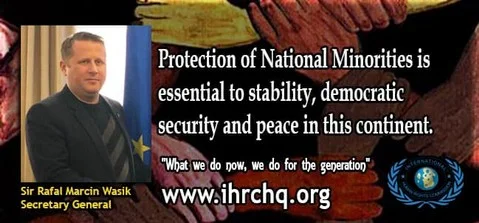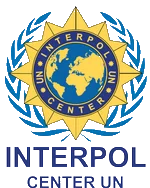Protection of National Minorities
Press center > Secretary General

Protection of National Minorities is essential to stability, democratic security and peace in this continent.
Rafal Marcin Wasik
Secretary General
Accepting and respecting that the ideal of a free human being which has all citizen and political freedoms can be achieved only if all conditions that enable everyone to have their citizen and political rights. Human Rights are universal, and civil, political, economic, social and cultural rights belong to all human beings, including members of minority groups.
Based on the universality of human rights and the fundamental principle of equality and non-discrimination, the UN High Commissioner for Human Rights strives to promote and protect the human rights of all, everywhere. Minorities require special measures to ensure that they benefit from the same rights as the rest of the population. Hence, minority rights serve to bring all members of society to a balanced enjoyment of their human rights.
The participation of persons belonging to minorities in public affairs and in all aspects of the political, economic, social and cultural life of the country where they live is in fact essential to preserving their identity and combating social exclusion. When it comes to rights for religious minorities. These rights include freedom of religion, economic opportunities, political representations, and socio-identical acceptability of minorities.
The human right of members of minorities to freedom from discrimination in all areas and levels of education, employment, access to health care, housing, and social services. Minority rights are based on the recognition that minorities are in a vulnerable situation in comparison to other groups in society, namely the majority population, and aim to protect members of a minority group from discrimination, assimilation, prosecution, hostility or violence, as a consequence of their status.
European history has shown that the protection of national minorities is essential to stability, democratic security and peace in this continent. Pluralist and genuinely democratic society should not only respect the ethnic, cultural, linguistic and religious identity of each person belonging to a national minority, but also create appropriate conditions enabling them to express, preserve and develop this identity.
Good and democratic governance serves the needs and interests of a State’s entire population. While democracy implies majority rule in political decision‑making, it also includes safeguards against the abuse of majority power. Ideally there should be no discrimination in a country’s law of the land, but if somehow that is not the case, every care should be taken to make sure that the minority communities can enjoy those rights that are afforded to them under the law, without fear of persecution.
Secretary General IHRC
Rafal Marcin Wasik




